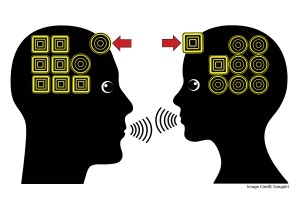Teachers who want to shape our practice with research find ourselves taking on extra responsibilities.
 In particular, we should probably hone our skills at investigating the research we use.
In particular, we should probably hone our skills at investigating the research we use.
Are we sure — or, sure enough — that the research is well done? How do we know whom to trust?
Over at The Effortful Educator, Blake Harvard has 3 very practical suggestions for considering “research based” advice offered during PD sessions.
Note, in particular, his emphasis on adapting research to your own situation. As I said in a post just 2 days ago: don’t just do this thing. Instead, PD might help you think this way.
Happy Timing…
Just after I wrote the short post above, I found a useful addition over at 3-Star Learning Experiences.
In this post, Mirjam Neelen & Paul A. Kirschner offer a usefully complex mental model for integrating research, technology, society and teaching.
And, they’ve got specific strategies for evaluating the evidence that might influence your teaching practice.
When you first try them out, these strategies will take some time, and some real mental effort. But: once you get into these habits, you’ll find yourself seeing past weak claims with increasing frequency.
For Example: Men and Women, and Sleep
As you may remember, I wrote about this study back in February.
In it, the authors claim that sleeplessness interferes with men’s working memory, but not women’s.
And yet, when you read the methodology section of the study, the flaw quickly becomes clear. Researchers made claims about working memory, but they tested short-term memory.
As you read more and more studies with Neelen and Kirschner’s guidance in mind, you’ll spot this kind of discrepancy with increasing ease.



